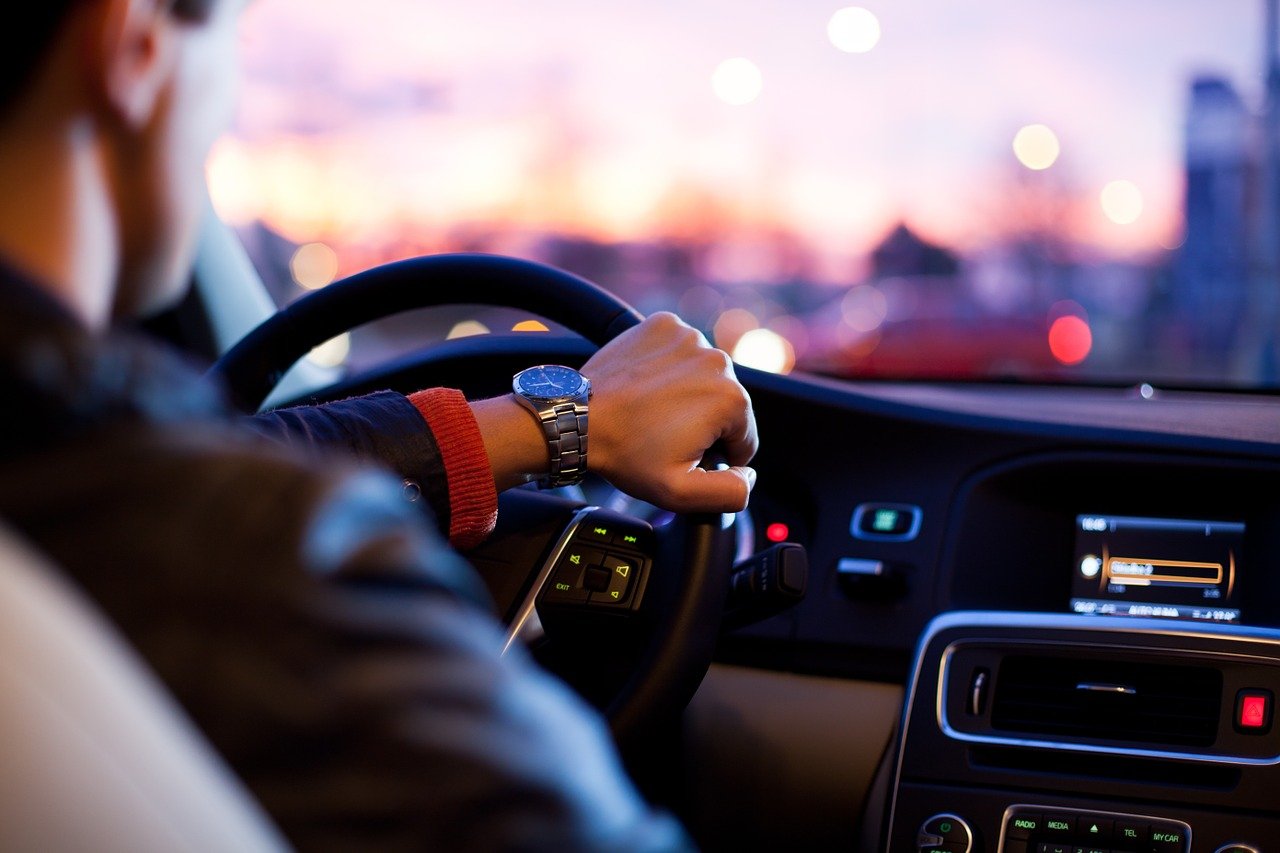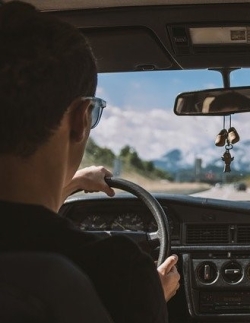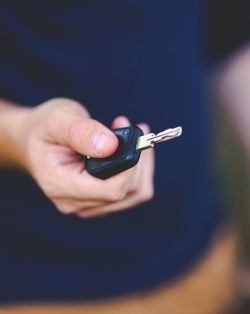Get Help With Alcohol Addiction
- Find meetings near you
- Discover online or in person meetings
- Get 24 hour information on addiction

When working to prevent drunk driving, preparation can offer a safety net that keeps you and others safe.1 The efforts you take to stop drinking and driving may save someone’s life, including your own.
By planning to prevent drunk driving, you can ensure your travel plans prioritize safety for yourself and others.
Why Stop Drinking and Driving?
 The risks associated with driving under the influence of alcohol can extend well beyond the person engaged in drunk driving.1, 2
The risks associated with driving under the influence of alcohol can extend well beyond the person engaged in drunk driving.1, 2
The legal consequences of driving while intoxicated may cause some people to reconsider their actions before they get behind the wheel.1 For others, the potential health and safety risks may cause enough concern to stop drinking and driving before it happens.
Before you decide to get into a situation where intoxicated driving may occur, take some time to consider the risks associated with this dangerous practice.2
Alcohol intoxication can cause a number of symptoms that may increase one’s risk of drinking and driving.3,4 When experiencing alcohol intoxication, people may lose their coordination and ability to focus on actions that promote health and safety.3 This can impair a person’s ability to safely operate machinery like motor vehicles.
Memory impairments and impaired judgment can also develop when people become intoxicated from alcohol use.3 When a person forgets their plans to prevent drunk driving, or their judgment becomes impaired due to the effects of alcohol, they may behave in ways that put themselves at risk.
Furthermore, alcohol use can lead to aggressive or inappropriate sexual behavior.3 These symptoms of alcohol intoxication can complicate the process of seeking support to prevent drunk driving and avoid other unsafe situations.
Still, a significant number of people facing addiction may continue to use alcohol even when doing so may cause harm to themselves or others.3 Because of this, knowing how to prevent drunk driving serves as an important tool in promoting safe alcohol use.
Call 800-839-1686 Toll Free. Privacy Guaranteed. No Commitment.
Help is standing by 24 hours a day, 7 days a week.
5 Ways to Prevent Drunk Driving
Each opportunity to consume alcohol serves as an opportunity to preserve your health and safety. Certain cultures, celebrations, or events may promote alcohol use.3 This can create circumstances where preparing to prevent drunk driving becomes even more important.1
Before you decide to engage in alcohol use, take some time to plan for safe, sober travel. This can help you stop drinking and driving before it starts.
#1 Prevent Drunk Driving With a Non-Drinking Designated Driver
According to the U.S. Centers for Disease Control and Prevention, a designated driver (DD) can help people avoid situations that may lead to drunk driving.2 You or a friend can become a DD by choosing not to drink and committing to that choice when driving becomes necessary. This responsibility requires a high degree of accountability and willingness to avoid alcohol use.
DDs serve an essential role for any group that chooses to drink, especially in public.2 They make sure that the people they transport can arrive at, and depart from, their respective destinations safely. A DD’s commitment to sobriety can preserve safety for themselves, the people they spend time with, and the people that they share the road with.
Questions to ask yourself or a friend potentially serving as a DD might include:
- Would you be willing to remain sober and drive for us tonight?
- Will you have access to safe and reliable transportation?
- How many people can you take with you?
- What time will you need to leave the bar or party?
- If you are unable to drive, can you help us find another safe ride or DD?
When trying to prevent drunk driving, allowing a sober person to take the wheel or coordinate transportation can go a long way to getting you to your destination safely.
#2 Stop Drinking and Driving Before it Starts: “Keys, Please”
When you drive somewhere and later become too intoxicated to drive to the next destination, securing your keys can offer a solution to the dilemmas associated with alcohol use and travel.1 Offering your keys to a DD or another person you trust can help you stay safe. This proactive practice can reduce your risk of driving under the influence of alcohol.
If you see someone you know attempting to drive after alcohol use, discuss holding onto their keys for them.1 Beyond securing keys for you or someone else, coordinating a safe and sober source of transportation can further reduce the risk of driving while intoxicated. This can help secure a ride home for those who have been drinking with you as well.
Different ways you can talk about securing keys to motor vehicles include:
- I’ve had too much to drink – could you hold onto my keys until I’m sober?
- I’m too drunk to drive right now – could you take my keys and help me get a ride home?
- I noticed you’ve been drinking – can I hold onto your keys and help you get a ride home?
- Hey why don’t you stay here tonight? I’ll hold onto your keys, and you can leave after you’ve rested.
With caring confrontation, you can encourage people to get the help they need, especially when faced with the risks of intoxicated driving.1,4
#3 Catch a Ride: Transportation Services to Prevent Drunk Driving
 Beyond coordinating a ride with a friend, you can also connect with transportation or ride-share service to prevent drunk driving.1 Having access to public transportation services can help you find a way home.5
Beyond coordinating a ride with a friend, you can also connect with transportation or ride-share service to prevent drunk driving.1 Having access to public transportation services can help you find a way home.5
Make preparations by having cab or bus fare on hand. If you can, obtain a bus or train pass and plan your way home in advance. This may involve reading bus or train routes as well as knowing when you need to catch your ride.
Proactive planning and commitment to a timeframe for travel can help you prioritize safety and prevent drunk driving.
Mothers Against Drunk Driving recommends connecting with transportation services when possible.5 They refer to ride-share companies like Uber and Lyft as sources of safe, sober transportation that can help prevent drunk driving. These companies also have rideshare apps that you can download.
Rideshare apps allow you to save your home address to a profile. This makes hailing a rideshare service and coordinating directions home an easy and straightforward process. Saving the contact information for a taxi company on your phone can also make reaching out for transportation services as simple as pressing a few buttons. Having information saved and ready to access can also help your friends, or someone you trust, coordinate transportation services if you cannot do so on your own.
If you see someone has become too intoxicated to drive, you can prevent drunk driving by helping them to catch a ride. If you need support calling a cab or ride-share company, see if someone around you can help you get connected.
#4 What to Know Before You Go
Before you choose to drink, you can prepare to prevent drunk driving by considering several factors.1,6 A clear understanding of your plans, expectations for those you choose to drink with, and how you will manage the effects of personal intoxication can ensure you approach alcohol use with safety in mind.6
A few other factors you will want to consider before you drink include:1, 3, 6
- The environment where you plan to drink
- How much and how long you plan to drink
- Who you expect to join you
- People you can call if you need a ride
- Places you can stay if you can’t drive
- Where and how do you plan to travel
- How you will communicate your plans and expectations for sober driving with others
This list does not include all of the precautions that may match your personal needs when using alcohol. To stop drinking and driving before it happens, talk with a loved one or someone you trust about managing the risks of alcohol intoxication.6
#5 Practice Mindfulness
Mindfulness refers to a process of becoming aware of experiences that occur in the present moment.7 People who practice mindfulness notice those experiences without judgment.4, 7
In practicing mindfulness, people may become aware of:4, 7
- Thoughts
- Feelings
- Physical sensations
- Behavior
- Perception
- Their environment
People may practice mindfulness by becoming openly aware or specifically focused on their experiences.7 In the context of working to prevent drunk driving, mindfulness skills can help you to remain attentive to changes in yourself and your environment. By accepting these experiences in a nonjudgmental manner, you gain a skill that allows you to maintain wellness and safety.4
Sometimes, people coping with alcohol use disorder or addiction develop strong cravings, urges, or desires to drink.3 This can make it challenging to remain sober, even when a person wants to avoid alcohol use. By using mindfulness techniques, you can become aware of your cravings for alcohol and seek ways of coping with those urges without turning to alcohol use.4, 7 This awareness may help you prevent drunk driving.
Call 800-839-1686 Toll Free. Privacy Guaranteed. No Commitment.
Help is standing by 24 hours a day, 7 days a week.
Get Help to Stop Drinking and Driving
When people feel as if they have no control over their alcohol use, they may need extra support to promote safety and prevent drunk driving from taking place.3,4 An ongoing pattern of driving while intoxicated can indicate growing health concerns. When a person’s health and wellness are affected by their alcohol use, they may develop an alcohol use disorder (AUD).3
Signs and symptoms of an AUD can include:3
- Using more alcohol than you intended
- Using alcohol for longer periods of time than you originally planned
- Consuming alcohol even though it places you or someone else’s health at risk
- Facing legal, personal, or other consequences due to alcohol use
- Spending a large amount of time engaging in alcohol use, recovering from the effects of alcohol use, or seeking it out
For more information on alcohol use disorders and how to get help, connect with a professional. Call
800-948-8417
Who Answers?
today to speak with a treatment specialist about recovery options available to you.
Resources
- National Highway Traffic Safety Administration. (n.d.). Drunk driving. U.S. Department of Transportation. Retrieved August 12, 2021.
- Centers for Disease Control and Prevention. (2020, August 24). Impaired driving: Get the facts. U. S. Department of Health and Human Services. Retrieved August 12, 2021.
- American Psychiatric Association. (2013). Substance-related and addictive disorders. In: Diagnostic and statistical manual of mental disorders (5th ed.).
- Miller, W. R., Forcehimes, A. A., & Zweben, A. (2019). Treating addiction: A guide for professionals. The Guilford Press.
- Rideshare. Mothers Against Drunk Driving. (n.d.). Retrieved August 12, 2021.
- Substance Abuse and Mental Health Services Administration. (2021, April 30). Impaired driving: Talk with your kids. U. S. Department of Health and Human Services. Retrieved August 12, 2021.
- Garland, E. L., & Howard, M. O. (2018). Mindfulness-based treatment of addiction: current state of the field and envisioning the next wave of research. Addiction Science and Clinical Practice, 13(1), 14.
Images Courtesy of Pixabay